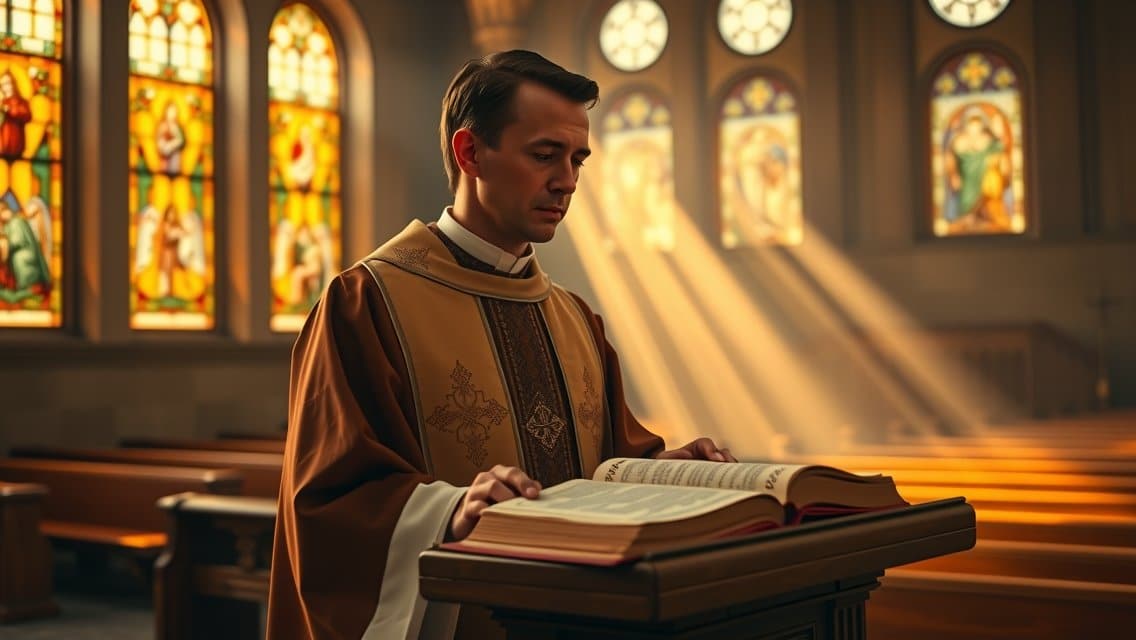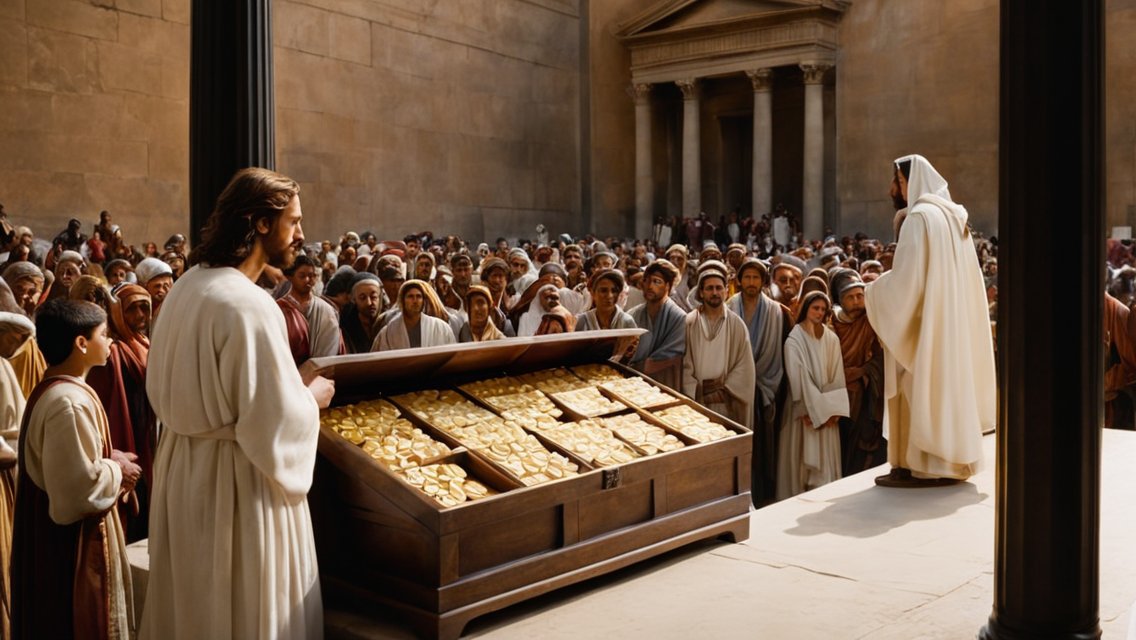Sixth Sunday of Easter Homily – Year B
Readings: Acts 10:25-26, 34-35, 44-48; 1 Jn 4:7-10, Jn 15:9-17
1st Reading – Acts 10:25-26, 34-35, 44-48
25 When Peter entered, Cornelius met him and, falling at his feet, paid him homage.
26 Peter, however, raised him up, saying, “Get up. I myself am also a human being.”
34 Then Peter proceeded to speak and said, “In truth, I see that God shows no partiality.
35 Rather, in every nation whoever fears him and acts uprightly is acceptable to him.”
44 While Peter was still speaking these things, the Holy Spirit fell upon all who were listening to the word.
45 The circumcised believers who had accompanied Peter were astounded that the gift of the Holy Spirit should have been poured out on the Gentiles also,
46 for they could hear them speaking in tongues and glorifying God. Then Peter responded,
47 “Can anyone withhold the water for baptizing these people, who have received the Holy Spirit even as we have?”
48 He ordered them to be baptized in the name of Jesus Christ.
Responsorial Psalm – Psalms 98:1, 2-3, 3-4
R. (cf. 2b) The Lord has revealed to the nations his saving power.
or:
R. Alleluia.
1 Sing to the LORD a new song,
for he has done wondrous deeds;
His right hand has won victory for him,
his holy arm.
R. The Lord has revealed to the nations his saving power.
or:
R. Alleluia.
2 The LORD has made his salvation known:
in the sight of the nations he has revealed his justice.
3AB He has remembered his kindness and his faithfulness
toward the house of Israel.
R. The Lord has revealed to the nations his saving power.
or:
R. Alleluia.
3BC All the ends of the earth have seen
the salvation by our God.
4 Sing joyfully to the LORD, all you lands;
break into song; sing praise.
R. The Lord has revealed to the nations his saving power.
or:
R. Alleluia.
2nd Reading – 1 John 4:7-10
7 Beloved, let us love one another, because love is of God; everyone who loves is begotten by God and knows God.
8 Whoever is without love does not know God, for God is love.
9 In this way the love of God was revealed to us: God sent his only Son into the world so that we might have life through him.
10 In this is love: not that we have loved God, but that he loved us and sent his Son as expiation for our sins.
Alleluia – John 14:23
R. Alleluia, alleluia.
23 Whoever loves me will keep my word, says the Lord,
and my Father will love him and we will come to him.
R. Alleluia, alleluia.
Gospel – John 15:9-17
Jesus said to his disciples:
9 “As the Father loves me, so I also love you. Remain in my love.
10 If you keep my commandments, you will remain in my love, just as I have kept my Father’s commandments and remain in his love.
11 “I have told you this so that my joy may be in you and your joy might be complete.
12 This is my commandment: love one another as I love you.
13 No one has greater love than this, to lay down one’s life for one’s friends.
14 You are my friends if you do what I command you.
15 I no longer call you slaves, because a slave does not know what his master is doing. I have called you friends, because I have told you everything I have heard from my Father.
16 It was not you who chose me, but I who chose you and appointed you to go and bear fruit that will remain, so that whatever you ask the Father in my name he may give you.
17 This I command you: love one another.”
Homily
Loving and Dying
“Love one another as I have loved you ” (In)
Rita was dying of a disease from which her nine-year old brother, Richard, had just recovered. The surgeon said to Richard, “Only a transfusion of your blood will save your sister. Are you ready to give her your blood?” Richard was terrified but finally said, “OK, Doctor!” After the transfusion, Richard asked quietly, “Doctor, when will I die?” it was only then that the doctor understood Richard’s fear: he thought that by giving his blood he would die for Rita. Is our love a ready-to-die love?
The word ‘love’ is so widely used and abused. I love Jesus. I love my girlfriend. I love my dog. I love chocolates. I love holidays. The same word love is used for God, persons, animals, things, events, etc. Moreover; and novels equate love with sex and talk about “making love” as if it could be manufactured and marketed. How do you understand ‘love’? Today’s second and third readings use the word ‘love’ almost twenty times.
Deus Caritas Est, the first encyclical of Pope Benedict, begins with the words of today’s second reading, “God is love” and goes on to explain what love entails. Indeed, all human love springs from a foundational fact, “God is love.” Mind you, this line appears only once in the Bible, but, it is the core which gives the whole Bible its deepest meaning.
Having asserted that God is love, Scripture tells us that we are God’s children since we are “created in God’s image and likeness” (Gen 1:26), and the greatest example of true love is set by Abba’s Son, our elder brother, Jesus. He washes his disciples’ feet before exhorting us to “love one another as I have loved you.” Jesus then proceeds to symbolically break bread and sacrifices his life at Calvary out of love for us. Christian love, therefore, is about bending down, washing feet, serving people, breaking body, shedding ‘one’s own blood: a selfless ready-to-die love.
Since the gospel of Judas has made Gnosticism famous, we note that, for Gnostics, the truth was “to know” God. in other words, to love God meant to have an intellectual grasp of God. In stark contrast, for Jesus, “to know” is not enough; one must ‘do’! “You are my friends if you do what I command you!” Indeed, Christian love is neither a consoling sentiment nor an ideology for speculation – it is a sacred covenant, a commitment to love in deed. Poet Rabindranath Tagore says this beautifully, “Lord, make my love fruitful in service.” Ultimately, love is readiness to die for another.
Christian love is never exclusive. A true Christian seeks to expand the horizons of her or his love by loving more and more people deeply. The first reading tells us “the gift of the Holy Spirit was poured out even on the Gentiles.” Gentiles were regarded as ‘outsiders’. But, not for Jesus. Thus, the more one can love others ‘outside one’s circle’, the more is one Christ-like.
Little Richard was ready to die for Rita. And, many mothers daily sacrifice so much so that their children might live fully. But what about our larger family, the world? We have a glowing example of a ready-to-die love in Indian social activist Medha Patkar, who sacrificed a flourishing legal career in Mumbai to work for the rights of tribals. She was accused of ‘attempted suicide’ since her fast against raising the height of the Narmada Dam was seen as potentially dangerous to the powers that be. True love is dangerous.
Love is not synonymous with pleasure. But, true love brings boundless joy. Jesus said, “These things I have spoken to you, that my joy may be in you, and that your joy may be full.” Sant Kabir said, “The saints are drunk with love, their thirst is for love.” Do I have this Christ-like thirst for love? With this thirst, I will certainly experience true joy. Even in death.





